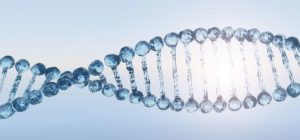Estrogen dominance is at an all-time high thanks to the extra hormones in the food we are exposed to. To combat this, we need to know how to lower estrogen naturally.
RELATED: What Happens When Estrogen Levels Are High?
In this article:
7 Ways to Lower Estrogen Levels
What Is Estrogen Dominance?
Estrogen dominance refers to the metabolic phenomenon wherein the hormone estrogen outweighs the level of progesterone in the body. It causes an imbalance or alteration in multiple processes, especially those involving the endocrine and reproductive systems.
Here are some of the symptoms that may be indicative of estrogen dominance in women:
- Irregular menstrual periods
- Low libido
- Bloating or water retention
- Mood swings
- Weight gain, mostly in the abdominal area, resulting in an apple-shaped silhouette
- Insomnia
- Brain fog
- Fibroids or abnormal growths in the uterus
- Endometriosis or the growth of endothelial tissue outside the uterus
- Polycystic ovarian syndrome or the condition wherein there is an excess amount of male hormones in the female body causing prolonged menstrual periods
- Thyroid nodules
While estrogen is more popular as the female sex hormone, it is also present in men and is responsible for a man’s sexual development and growth. In excess amounts, it can also cause an imbalance.
Here are estrogen dominance symptoms in men:
- Infertility
- Gynecomastia, or the condition where high levels of estrogen stimulate breast tissue growth in men
- Erectile dysfunction
How to Lower Estrogen Naturally
1. Cut Back on Caffeine
Caffeine may boost your energy, but it can also alter your levels of estrogen. Studies show that women who consumed 200mg or more of caffeine a day had more elevated levels of estrogen compared to those who drank less.
Caffeine can also have different effects depending on what part of your monthly cycle you are currently in. How much caffeine consumed is also crucial, with two cups of coffee being enough to raise estrogen levels if consumed regularly.
2. Avoid Stress
When you undergo high levels of stress, you produce high levels of cortisol, otherwise known as the stress hormone. It is also called the “fight-or-flight” hormone which the body produces when it feels threatened.
To manufacture cortisol, the body needs progesterone. The longer you stay under high stress, the more progesterone your body uses.
The more progesterone your body uses up, the more excess estrogen is left behind in your body, creating a great discrepancy. This throws your body into a hormonal imbalance, with estrogen being the dominant hormone.
Engaging in mindful practices and having helpful stress management habits can help keep your body’s stress levels to a minimum.
3. Lose Excess Weight
Maintaining a healthy body weight is actually key to maintaining metabolic and hormonal balance. Men and women who have very high levels of estrogen tend to gain fat more easily, specifically in their waist and hip areas.
By losing excess fat, the body also produces and stores less estrogen, thus helping prevent estrogen dominance.
RELATED: What Is Estrogen Dominance And What To Do About It?
Lowering estrogen naturally may also mean taking a closer look at the things you eat. Many foods, such as soy, are linked to rising estrogen levels, as well as a countless number of other food products injected with xenoestrogens.
Xenoestrogens Definition: Substances that mimic the structure of estrogen, commonly present in plastics, cosmetics, drinking water, and pesticides
4. Consume More Fiber
Since estrogen can be expelled from the body through urination and bowel movements, eating more insoluble fiber can be beneficial. Estrogen takes longer to pass through your digestive system, leaving it with enough time to reabsorb into the body.
A diet high in insoluble fiber makes it easier for bowel movements to pass. It also blocks the reabsorption of and excretes excess estrogen.
Prime examples of insoluble fiber-rich foods include:
- Whole grains
- Dark, leafy greens
- Cruciferous vegetables like broccoli, spinach, and kale
- Nuts and seeds
- Root vegetables
- Beans
5. Aim for a Healthy and Organic Diet
A western diet full of meat and dairy is linked to high estrogen levels in both men and women. This is because many of these food products contain additional hormones that expose consumers to excessive estrogen.
Going organic reduces the risk of excess hormone exposure. Many organic foods and produce come free of hormone-affecting pesticides and ingredients, making them a safer choice.
Consuming foods with phytoestrogens can also counteract the effects of estrogen. Examples are:
- Berries
- Flax seeds
- Pomegranates
- Apples
- Pears
Phytoestrogens Definition: Estrogen-like chemicals found in plant-based foods. While they may have similar effects to estrogen, they are significantly weaker.
6. Get More Sleep
Poor sleeping habits can greatly reduce the sleep hormone, melatonin, in your body. Melatonin not only ensures good sleep quality but also helps protect your body against estrogen dominance by keeping sex hormones balanced.
Improve your sleeping habits by aiming for at least 6-8 hours of sleep nightly. Reduce blue-light exposure (scrolling through your smartphone in bed) and keep your room as dark and comfortable as possible to make it easier to kickstart your sleep cycle.
7. Take Vitamins
Supplementing your diet with specific vitamins can also help reduce your exposure to estrogen. Vitamins and minerals like zinc, vitamin B6, and magnesium help support your body in breaking down and eliminating estrogen and prevent enzymes from converting testosterone to estrogen.
Keep in mind that while high levels of estrogen can have a drastic effect on your health, it is very easily mitigated by a few lifestyle changes. It may certainly be inconvenient, but not a life sentence.
There are many alternative treatment options for estrogen dominance, including hormone replacement therapy, or peptide therapy. Integrative health care can also be of help to hormone-related conditions.
Reach out to us at LIV Health so we can assist you in finding the right specialist.
Did you learn anything new about estrogen after reading this article? Share your discoveries with us in the comments section below!
Up Next:
- The Estrogen Family: Estrone, Estradiol, Estriol
- What Foods Are High In Estrogen?
- HRT Hormone Replacement Therapy For Women: Frequently Asked Questions


